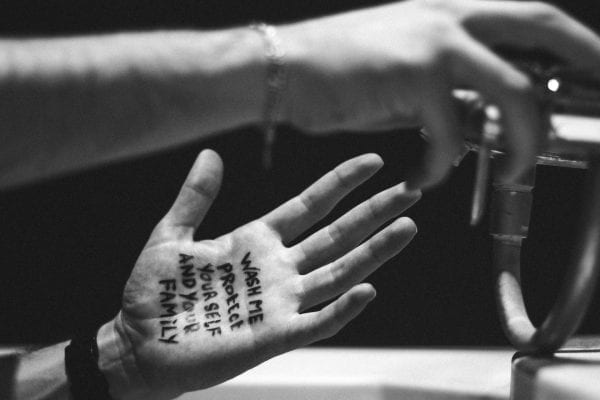
Give it up for hand hygiene!
By Ekmini Ramanayaka Pathirannehelage, class of 2020.
I think our hands have been feeling extra special over the past few months, don’t you? From Prime Minister Boris Johnson to celebrities doing #SafeHands Challenge initiated by the WHO, prioritising hand hygiene has been a key message in helping to slow the spread of COVID-19. Would you believe it when I say that it actually wasn’t so famous not too long ago?!
In some religions, hand washing is prescribed in their religious texts but it was only in the 1980s that we started seeing official guidelines being introduced into American healthcare settings.
‘1980?! Why, that’s only 30 years ago!’ you might be exclaiming. Let me just tell you that Dr Ignaz Semmelweis was trying to convince his colleagues in 1849! Yet, amongst other things, no one wanted to get on board because they didn’t want to accept that it was their unclean hands that were contributing to the deaths of new mothers. Today, Dr Semmelweis is recognised as the ‘Father of hand hygiene’. There’s even a university named after him!

This wasn’t a popular message not too long ago.
It is now a key tool in the fight against COVID-19
(Photo: Dhaya Eddine Bentaleb on Unsplash)
The science behind cleaning hands
Ignaz Semmelweis tried to push his colleagues to use chlorinated lime solution to clean their hands before they began to work on delivering babies. For most of us though, we’re mainly concerned with keeping clean hands at work and at home so let’s look into how hand hygiene works for the regular Joe.
Soap and water are what nightmares are made of for some bacteria and viruses. The structure of soap molecules allows them to literally burst the bubble of some viruses and bacteria, breaking through their protective layers. Soap also works mechanically, forming micelles around the nasties on our hands and making it easier for us to wash them down the drain.
Then what about hand sanitiser? Well, alcohol-based hand rubs are also great to get rid of the bad guys and have even been stated to be more effective. It’s even been shown to have some effect in helping to prevent children from missing school. But there still is some uncertainty as to which method is superior so please don’t put aside your soap and water just yet.
Itchy hands and dry skin
As awesome as getting rid of bad viruses and bacteria sounds, frequent hand washing can sometimes cause your hands to dry out. As great as it might feel to think that an itchy left palm is bringing money your way (don’t we always need a little bit more?!), increased dryness, and even contact dermatitis, have come hand in hand with efforts to keep their hands clean for some people. Although it may seem discouraging, a chat with a doctor or pharmacist can help with solving this issue and put you back on your way to cleaning your hands in a way that is healthy and safe for you.
Rocking your wash
If your hand washing vigour is waning and twenty seconds is starting to feel like twenty days, I may have a solution for you! Earlier on in the year, William Gibson created a great website to make washing infographics to your song of choice. So, you can get your boogie on AND wash your worries (and unwelcome disease causing nasties) away!
Categories